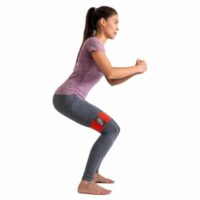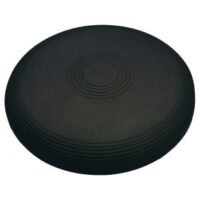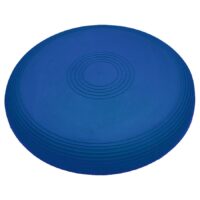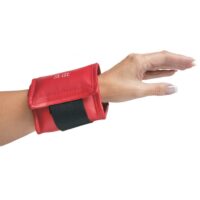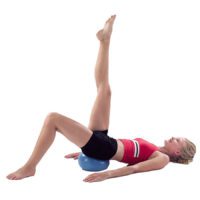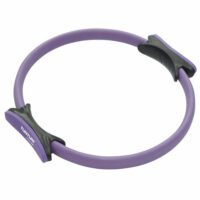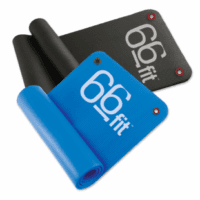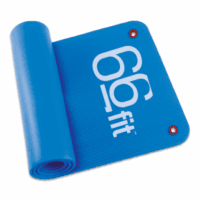Sports Injury Management
Article by Zoe Russell
Sports Injury Management
Introduction
Participating in sports and exercise delivers significant benefits, enhancing both physical and mental well-being. However, with these benefits comes the risk of sports injuries, an inevitable aspect of athletic activity at any level. As physiotherapists, we focus not only on treating these injuries but also on educating athletes on injury prevention and optimal recovery strategies.
Why Sports Injuries Matter
Sports injuries, though less frequent than the benefits of physical activity, can have a profound impact on an athlete’s performance and overall well-being. Injuries range from common muscle strains to more severe ligament injuries and concussions. Understanding the causes behind these injuries is crucial for effective prevention and management.
How Do Sports Injuries Occur?
Sports injuries can be broadly categorised into acute and chronic injuries:
- Overuse: Repeated stress on a body part without adequate rest can lead to chronic injuries like tendinitis or stress fractures. This is especially common in athletes who engage in repetitive motions without sufficient recovery time.
- Direct Impact: Acute injuries often result from a direct blow or collision, leading to bruises, concussions, and fractures.
- Improper Technique: Using incorrect techniques during sports can place undue stress on muscles and joints, increasing the likelihood of injury.
- Lack of Conditioning: Inadequate physical conditioning may result in muscle imbalances and weaknesses, making the body more susceptible to injuries such as strains and sprains.
- Inadequate Warm-Up: Skipping warm-ups or stretching can cause muscle stiffness, heightening the risk of injury.
- Improper Equipment: Using ill-fitting or inappropriate equipment can also contribute to injuries. This includes wearing the wrong footwear or lacking protective gear.
- Environmental Factors: Playing on hard surfaces or in extreme weather conditions can increase the injury risk.
- Previous Injuries: A history of injuries can make athletes more prone to re-injury, especially if they return to sports before fully recovering.
What to Do About Sports Injuries?
Solution: Sports Physiotherapy and Injury Management
Sports physiotherapy is a specialised branch of physiotherapy that addresses the unique needs of athletes. It involves a comprehensive approach, considering an athlete’s general health, energy systems, muscle and joint functionality, and hormonal balance. Physiotherapists play a vital role in helping athletes recover through personalised care plans and preventative strategies.
Common Sports Injuries and Their Management
Athletes commonly encounter the following injuries:
- Muscle Strains
- Tendinopathies
- Ligament Injuries
- Stress Fractures
- Concussions
- Spinal Injuries
- Issues Specific to Youth Athletes
- Relative Energy Deficit in Sport (RED-S)
- Delayed Onset Muscle Soreness (DOMS)
Each injury requires a tailored management strategy. Sports physiotherapists are well-equipped to provide these strategies, ensuring optimal recovery and minimising the risk of future injuries.
Read more: Common Sports Injuries – A guide to the most frequent injuries and how to manage them.
Injury Rehabilitation and Recovery
Rehabilitation is critical in sports injury management. It involves structured exercises and therapies designed to restore function, improve strength, and enhance flexibility. Innovations in sports medicine have introduced new rehabilitation techniques that reduce recovery time, enabling athletes to return to their sport more quickly and safely.
Read more about advanced sports injury rehabilitation techniques.
Preventing Sports Injuries
Injury prevention is just as important as treatment. Physiotherapists educate athletes on proper training techniques, body mechanics, and rest strategies to minimise injury risk. Regular assessments and conditioning programmes play a vital role in this preventative approach.
Learn more about injury prevention strategies
Latest Insights on Sports Injury Management
Research on sports injury management is constantly evolving, with new studies challenging and refining best practices in evidence-based rehabilitation. At PhysioWorks, our team stays ahead by continually updating our knowledge and undergoing extensive training to implement the latest guidance. This commitment ensures that your sports injury rehab delivers the best possible outcomes.
Seeking Professional Advice
If you’re dealing with a sports injury, it’s essential to consult a sports injury physiotherapist. They will provide an accurate assessment, precise diagnosis, and an effective management plan tailored to your specific needs.
Read more about sports physiotherapy
Conclusion
Effective sports injury management involves a holistic approach, combining accurate diagnosis, specialised care, and tailored rehabilitation programmes. Our goal as physiotherapists is to help athletes recover fully and excel in their sports while minimising the risk of future injuries.
What to Do Next?
If you’re experiencing a sports-related injury or are interested in injury prevention, we recommend seeking professional advice from a physiotherapist. Visit PhysioWorks for more information and resources tailored to your sporting needs.
Rochedale - Call 38410277
Book Online: RochedaleSalisbury - Call 32751044
Book Online: SalisburySandgate - Call 32691122
Book Online: SandgateSports Injury FAQs
- What are the most common sports injuries?
- The most common sports injuries include muscle strains, ligament tears, and concussions. Each requires specific management strategies for effective recovery.
- Read more about common sports injuries
- How can sports injuries be prevented?
- Sports injuries can be prevented through proper conditioning, using correct techniques, wearing appropriate gear, and following a structured warm-up routine.
- Learn more about injury prevention
- Why is rehabilitation important after a sports injury?
- Rehabilitation is crucial to restoring function, improving strength, and preventing re-injury. It helps athletes return to their sport safely and quickly.
- Discover the importance of rehabilitation
- What should I do immediately after a sports injury?
- Apply the RICE method: Rest, Ice, Compression, and Elevation. Then, seek professional advice from a physiotherapist for further evaluation.
- Get immediate care tips
- Can I continue to play sports with an injury?
- Continuing to play with an injury can worsen the condition. It’s essential to rest and follow a rehabilitation plan to ensure proper recovery.
- When should I see a physiotherapist for a sports injury?
- It’s best to see a physiotherapist as soon as possible after an injury to get an accurate diagnosis and start an effective treatment plan.
Related Articles
- Sports Injury Management – Explore tailored management strategies for various sports injuries.
- Preventive Care – Learn how to prevent sports injuries with proper care and techniques.
- Injury Rehabilitation – Discover innovative rehabilitation methods that speed up recovery.
- Common Sports Injuries – A guide to the most frequent injuries and how to manage them.
- Concussion Management – Understand how to handle concussions and promote safe recovery.
- Spinal Care – Learn about managing and preventing spinal injuries.
- Muscle Strains – Tips on treating and recovering from muscle strains.
- Ligament Injuries – Effective strategies for managing ligament injuries.
- Relative Energy Deficit in Sport (RED-S) – Learn about the effects of RED-S on athletes and how to manage it.
- Sports Medicine Australia: Injury Fact Sheets – Discover in-depth information on various sports injuries and their management.
- Sports Injury Prevention – Tips on how to prevent sports injuries and stay safe while active.
- Sports Injury Prevention and Management – Access the latest research on sports injury prevention and management from a trusted medical journal.




